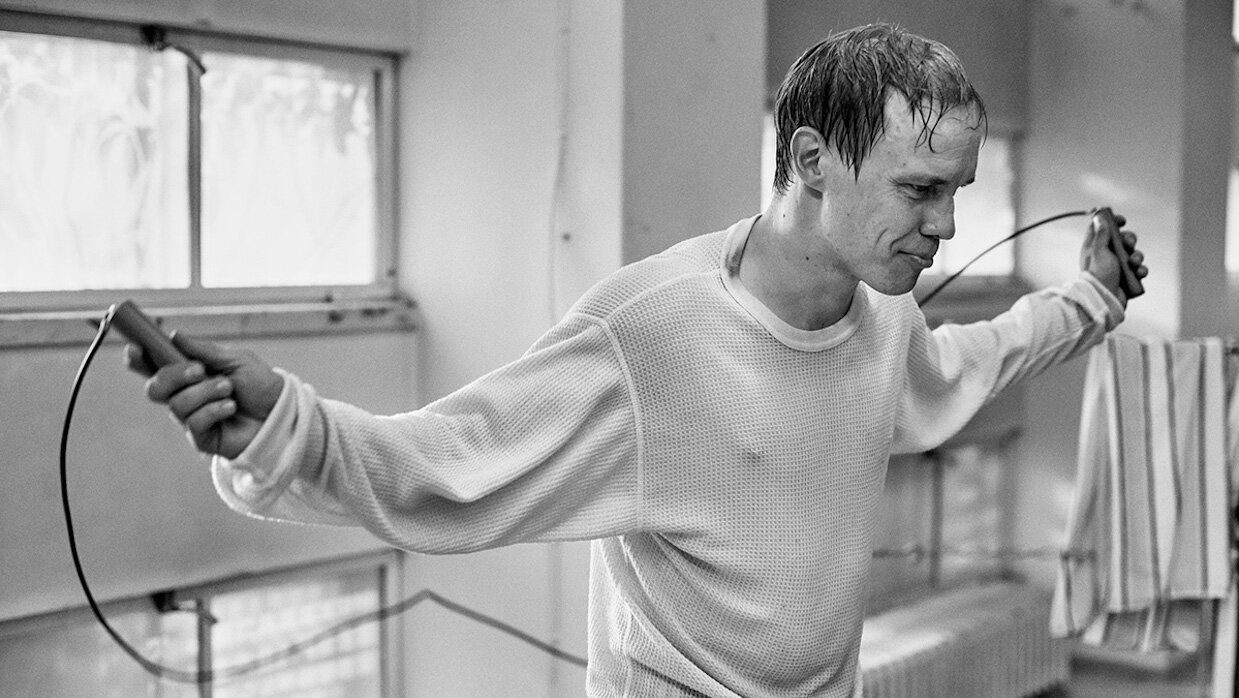PFF25: The Happiest Day in the Life of Olli Mäki
There exists an incredible authenticity in Juho Kuosmanen’s feature debut The Happiest Day in the Life of Olli Mäki, and it’s not only due to the fact that it’s a 60s piece shot in black and white.
Olli Mäki is based on the true story of the small-town Finnish boxer who, in 1962, had a shot at winning the World Featherweight Championship against the then-American champion, Davey Moore. A baker in his hometown, Olli (Jarkko Lahti) is an amateur boxer, recently turned pro and soon-to-be national hero. His coach, Elis Ask (Eero Milinoff), demands a lot from Olli, including making him slim down to 126 pounds, which the competition requires. However, Olli's budding romance with the beautiful and almost child-like Raija (Oona Airola) soon hinders his high-level training, two weeks from the big fight.
From relationship demands to professional obstacles and national attention, Olli manages a lot of pressure. Indeed, he is thrust into the harsh and hostile boxing world, the complete antithesis of his quiet life in his small town. His struggle to lose weight and Elis's demanding nature rob Olli of his humanity, leaving Olli little time for peace and quiet. Juho Kuosmanen, the director, perfectly tangles the harshness of the boxing world with the discreet and childish life in the country associated with Raija.
Raija and Olli share a very special bond, linked with puerile activities: not only do they sleep in bunk beds in Ellis’ apartment, as if they were roommates, they also cycle, play games, go to fairs, enjoy nature, and fly kites. But most importantly, they love each other in the purest of forms. It’s a love that doesn’t need explaining, and it gives Olli a series of impulses and gut feelings. I find it interesting for a boxing movie to make the sentimental Olli's drive, and not his passion and ambition for boxing.
Throughout the film, Olli is exposed to multiple forms of media, such as photographs, interviews, documentaries, and advertisements. He is quickly disgusted by his perceived artificiality and superficiality of that world. Jarkko Lahti gives an incredible performance as this infuriated and misunderstood boxer, especially when faced with self-representation. The "promotional film" Olli stars in claims to represent his truth, yet his lines are scripted, his actions are blocked, and the tone is unnatural.
Kuosmanen, with Olli Mäki, proves an incredible mastery of filmmaking skills. With primal and almost obsolete choices (the film is shot handheld, in black and white 16mm, and only uses diegetic sound), the audience is given a lesson in authenticity – of the craft, and of the mind. Indeed, when reduced to crucial questions on love and happiness, Olli responds with the beautiful innocence of a child, and for that, he wins all our hearts.
The Happiest Day in the Life of Olli Mäki won the prize for the Un Certain Regard competition at the Cannes Film Festival (a competition dedicated to filmmakers’ first and second works).
